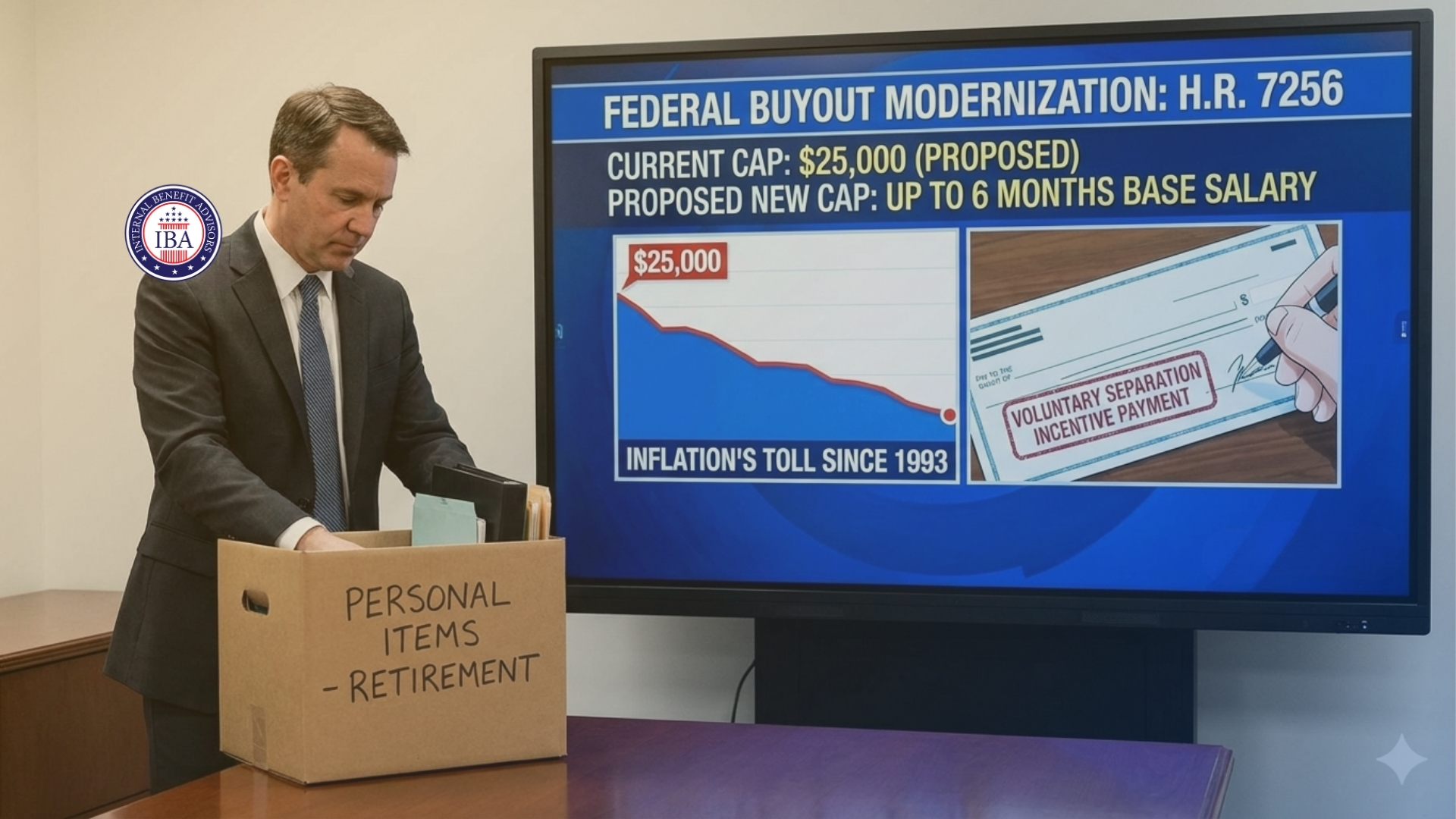The Office of Personnel Management (OPM) has instructed federal agencies to evaluate employee adherence to Trump administration policies in performance reviews (FedWeek). This significant Federal Workforce policy change could directly affect Federal Employees’ career trajectories and retirement benefits, making professional Federal Retirement Planning guidance more valuable than ever.
Key Changes and Their Retirement Implications
✔ Policy Compliance Metrics Now Included in Performance Ratings:
- May impact career advancement opportunities
- Could influence high-3 salary calculations
- Potentially affects retention during workforce reductions
✔ Revised Evaluation Criteria:
- New emphasis on political alignment factors
- Changes to critical performance elements
- Modified rating benchmarks
✔ Potential Consequences:
- Accelerated retirement timelines for some employees
- Changes in competitive status for promotions
- Modified eligibility for retention preferences
Recent history, including past directives for agencies to assess employee compliance with administration policies in performance ratings, highlights a dynamic aspect of federal service. When performance metrics are tied to shifting policy goals, it serves as a crucial reminder for all Federal Employees to focus on what is constant and controllable: your personal financial strategy and a deep understanding of your Federal Benefits.
While performance standards may evolve, a robust Federal Retirement Planning strategy provides a bedrock of security that empowers you to navigate your career with confidence.
Understanding the Role of Performance Reviews
Your performance appraisal is a critical component of your federal career. It directly influences:
- Within-Grade Increases (WGIs): Your eligibility for step increases is contingent upon receiving a rating of “fully successful” or equivalent.
- Career Advancement: Strong performance ratings are essential for promotions and competitive job applications.
- Retention Standing: In the event of a Reduction-in-Force (RIF), your last three performance ratings are used to grant additional service credit, which can be a deciding factor in who is retained.
When performance elements are linked to compliance with specific, potentially temporary, administration policies, it introduces a layer of uncertainty into this critical process.
Your Proactive Strategy for Career and Financial Resilience
The key to thriving in a dynamic environment is to build a foundation of security that is independent of subjective or shifting metrics.
- Focus on Core, Mission-Critical Competencies: The most durable career strategy is to become an expert in the fundamental, long-term mission of your agency. By consistently delivering objective value that serves the public interest, you make yourself an indispensable asset, regardless of the political climate.
- Leverage Your TSP for Financial Autonomy: Your Thrift Savings Plan (TSP) is your most powerful tool for personal financial control. It is a private, portable asset that grows based on your contributions and market performance, not your performance rating. Maximizing your TSP contributions builds a fund that provides the ultimate career flexibility and financial independence.
- Recognize Your FERS Pension as an Earned Asset: Your Federal Employees Retirement System (FERS) pension is calculated based on your years of service and your high-3 average salary. While strong performance can lead to promotions that increase your high-3, the benefit itself is a stable, earned right. Understanding your vesting status and projected annuity provides a clear view of a long-term asset you are building every day.
- Maintain Meticulous Records: In an environment where performance standards may be in flux, keeping detailed records of your accomplishments, projects, and positive feedback is more important than ever. This documentation provides objective evidence of your contributions.
The Importance of a Holistic Plan
Your career and your finances are deeply intertwined. A shift in performance management philosophy can have ripple effects. This is why a holistic approach to your Federal Retirement Planning is essential.
Consulting with financial professionals who specialize in Federal Benefits, such as the advisors at Internal Benefit Advisors, can help you create a strategy that is resilient to policy shifts. They can help you:
- Maximize your TSP to build a strong financial buffer.
- Understand how your career progression impacts your FERS pension calculations.
- Develop a comprehensive financial plan that provides security and gives you the confidence to focus on excelling in your role, no matter how the goalposts move.
Ultimately, while you must adapt to the performance standards of the day, your greatest source of long-term security comes from diligent financial planning and a commitment to delivering undeniable, mission-focused value.
3 Critical Retirement Risks From Policy-Driven Performance Reviews
1. Career Progression Disruptions Threatening High-3 Salaries
- Impact: Altered promotion patterns may affect:
- Final salary calculations for FERS annuities
- TSP contribution levels
- Retirement eligibility timelines
- Expert Mitigation Strategy:
- Career path optimization planning
- Performance documentation systems
- Alternative advancement pathways
2. Workforce Reshaping and Early Retirement Pressures
- Documented Precedents: Previous policy shifts led to:
- Increased voluntary early retirements
- Changes in RIF retention factors
- Modified voluntary separation incentives
- Advisor Protection Plan:
- Early retirement impact modeling
- Benefits preservation strategies
- Workforce transition planning
3. Benefits Eligibility Modifications
- Potential Changes:
- Revised criteria for retention benefits
- Modified phased retirement approvals
- Altered leave accrual impacts
- Professional Guidance Solutions:
- Benefits vulnerability assessments
- Eligibility optimization strategies
- Contingency planning
Why Specialized Federal Retirement Advisors Are Essential Now
At Internal Benefit Advisors, we provide critical protection through:
Policy-Responsive Retirement Planning Services
✔ Career Impact Analysis: Projecting how changes affect retirement timelines
✔ Benefits Optimization: Maximizing FERS, TSP, and FEHB outcomes
✔ Transition Strategies: Preparing for potential workforce changes
Comprehensive Protection Planning
- High-3 Salary Protection
- Promotion timing analysis
- Pay grade optimization
- Performance documentation review
- TSP Growth Strategies
- Contribution maximization planning
- Asset allocation adjustments
- Withdrawal sequencing
- Healthcare Continuity Assurance
- FEHB transition analysis
- Medicare coordination planning
- Long-term care evaluation
“In periods of policy transition, federal employees need professional guidance more than ever. A single rating change can impact lifetime retirement benefits by tens of thousands of dollars.” – Michael T., Senior Federal Benefits Strategist
References:
Secure your retirement against policy changes—schedule a consultation with our Federal Retirement Protection Specialists today.




